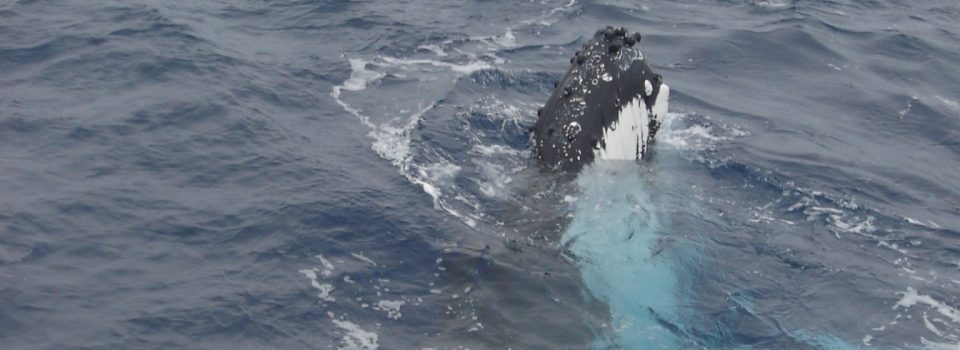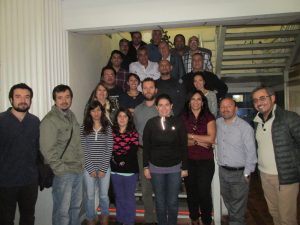IFOP held a whale’s strand of net workshop
May 4th, 2017It was lectured by Mauricio Ulloa, veterinarian, head of Sernapesca (National Fishing Service) Conservation and Rescue Unit.
The workshop “Whales strand of net “ Was held on April 26 between 9 and 14: 00 hrs, at Marcos Espejo Vidal IFOP´s auditorium.
The activity is part of the “Follow-up Project for Highly Migratory Resources, Ecosystemic Approach and seeks to contribute to the joint efforts made by Chile and the Global Network’s Response to the Whale Entanglement International Whaling Commission.
Mauricio Ulloa, lecturer, head of Sernapesca (National Fishing Service) Protected Species Conservation and Rescue Unit. “This training is a response to the net entanglement that not only happens in Chile, but is a global phenomenon. Whales net disentanglement has become highly relevant probably because people is more conscious about it and is worried and aware of animal wellbeing and marine conservation. As these facts get strengthened, it has acquired greater importance. Fortunately, as National Fishing Service we have the authorization of (CBI) International Whaling Commission to perform trainings in Chile. I am the official lecturer and coordinator facing the response to Whales Entanglement in Chile.
Due to IFOP role. This training is important considering the deployment and the sampling effort to ships all along Chile and B/I Abate Molina cruises that are of great extension and this helps to report cetaceans entanglements.
The original workshop has a theoric and a practical part. In this opportunity we are performing the theoric part that has a very important role in relation to human life care and personal safety. So one of the main advices said never enter the water or using divers suits, disentanglement always must be from a boat and performed in a professional way using specialized utensils to make cuts and be able to release”.
Dr Zarate Head of the Highly Migratory Resources Project. Ecosystemic approach explains that in Chile fishing activities do generate impact over marine mammals. When incidental capture happens due to fishing crafts and tools but also there are entanglements that happens due to the existence of lost or abandoned materials left by fishermen and due to the nature of the materials used in manufacture they can by themselves keep fishing for a long time. In Chile there are some entanglement of big cetaceans. However to disentangle a whale is not a trivial activity, on the contrary, it requires constant training and preparation”.
Jorge Azocar, IFOP researcher added: “this workshop confirmed an ecosystemic vision to approach fisheries research. Which currently prevails in the world and inside IFOP.
Dr. Zárate adds “as IFOP, we have a regular presence at the ocean by means of our observers, crew members, technicians and researchers who embark both on research cruises and fishing vessels. With this first theoretical training, we are contributing with Whales entanglement sightings reports and we hope in the near future to be trained to actively participate in the rescue team.

